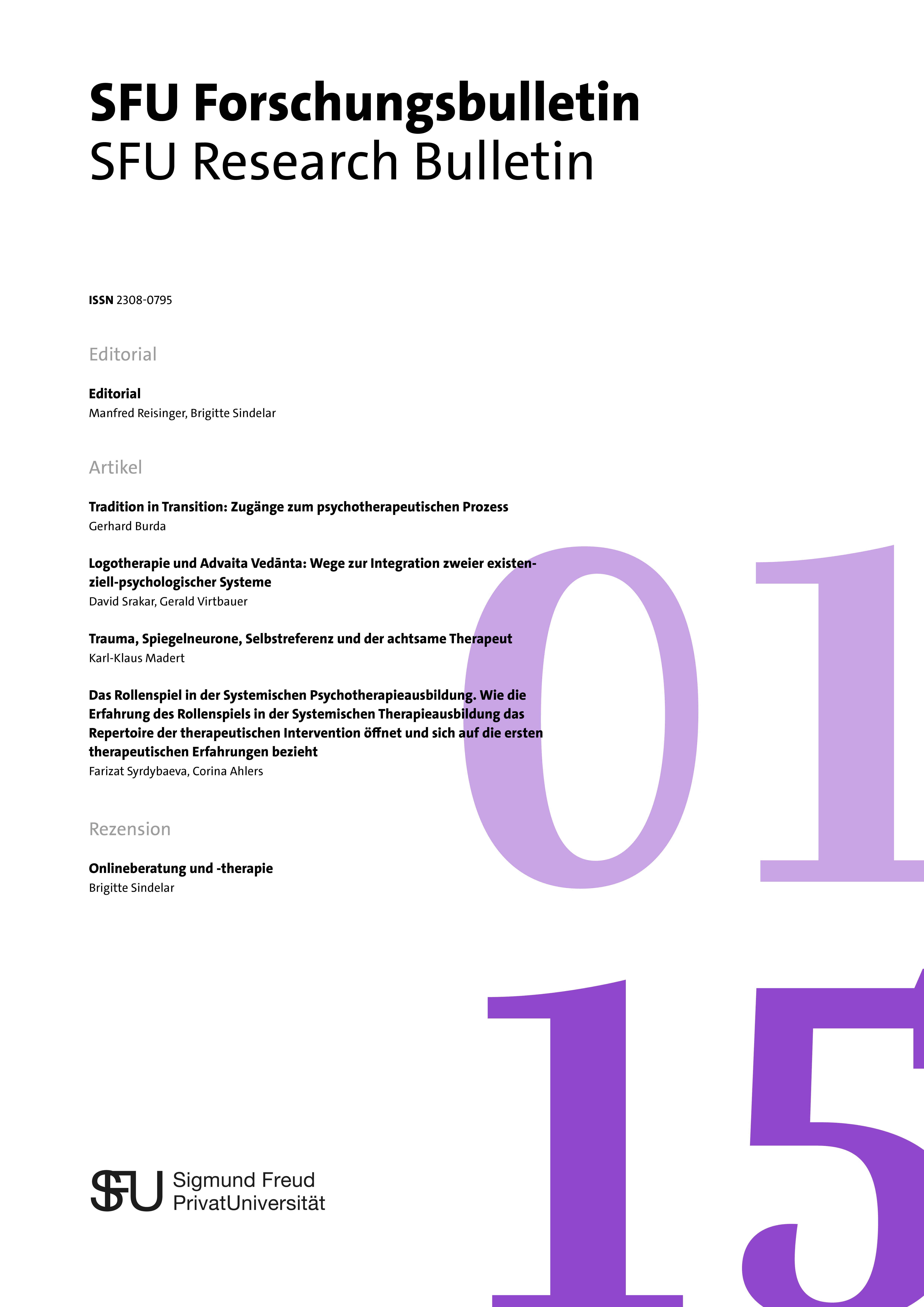Role-Playing in Systemic Psychotherapy Training. How the Experience of Role-Playing in Systemic Therapy Training Opens the Repertoire of the Therapeutic Interventions and Relates Them to the First Therapeutic Experiences
DOI:
https://doi.org/10.15135/2015.3.1.43-54Abstract
The systemic idea of learning by doing is a basis for the role-playing. The role-playing is related to the forming of the therapist’s repertoire and way of conducting therapeutic session. The contributions of the role-playing influence the development of the student as a therapist. With the role-playing, students can get practice to improve skills, self-awareness, get supervision and feedback. Role-playing shows the student`s style of conducting therapy. The dynamic in the group influences personal experience and efficacy of the role-playing.References
Burch, C., Gwyn, D. (2010). Mirrors and Reflections: Processes of Systemic Supervision. London, GBR: Karnac Books.
Dourdouma, A., Mörtl, K. (2012). The Creative Journey of Grounded Theory Analysis: A Guide to its Principles and Applications. Research in Psychotherapy: Psychopathology, Process and Outcome, Vol.15, No.2, 96-106
Duncan, B. (2010) On Becoming a Better Therapist. Psychotherapy in Australia, Vol.16, NO 4.
Duncan, B. (2011). What therapists want: It’s certainly not money or fame.
Psychotherapy Networker, May/June, 40-43, 47, 62.
Jossey-Bass/Pfeiffer. (1998). Training Technologies for Experiential Learning Activities. The Pfeiffer Library, Vol. 21, 2nd Edition
Landis, L. L., Young, M. E. (1994). The reflecting team in counselor education.
Counselor Education & Supervision, Vol. 33 Issue 3, p210. 9p.
Minuchin, S.F., Charles, H. (1981). Family Therapy Techniques. Cambridge, MA, USA: Harvard University Press.
Orlinsky, D. (2008). Comments on the State of Psychotherapy Research (As I See It). Existenzanalyse.
Pomerantz, A.M. (2003). Who plays the client? Collaborating with theater departments to enhance clinical psychology role-play training exercises. Journal Of Clinical Psychology, Vol. 59 (3), pp. 363-8.
Rasheed, J.M., Rasheed, M.N., Marley, J.A. (2011). Family Therapy: Models and Techniques. London GBR: SAGE Publications, chapter 4, pp.135-167.
Wannan, G.,York, A. ( 2005). Using video and role-play to introduce medical students to family therapy: is watching better than appearing? Journal of Family Therapy, Vol. 27 Issue 3, p263-271. 9p.
Downloads
Published
Issue
Section
License
The reproduction of articles published in any form is allowed under the condition that the citation is comprehensive. Prints in other publication media or public media require the written consent of the editor and can be requested under: forschung@sfu.ac.at
